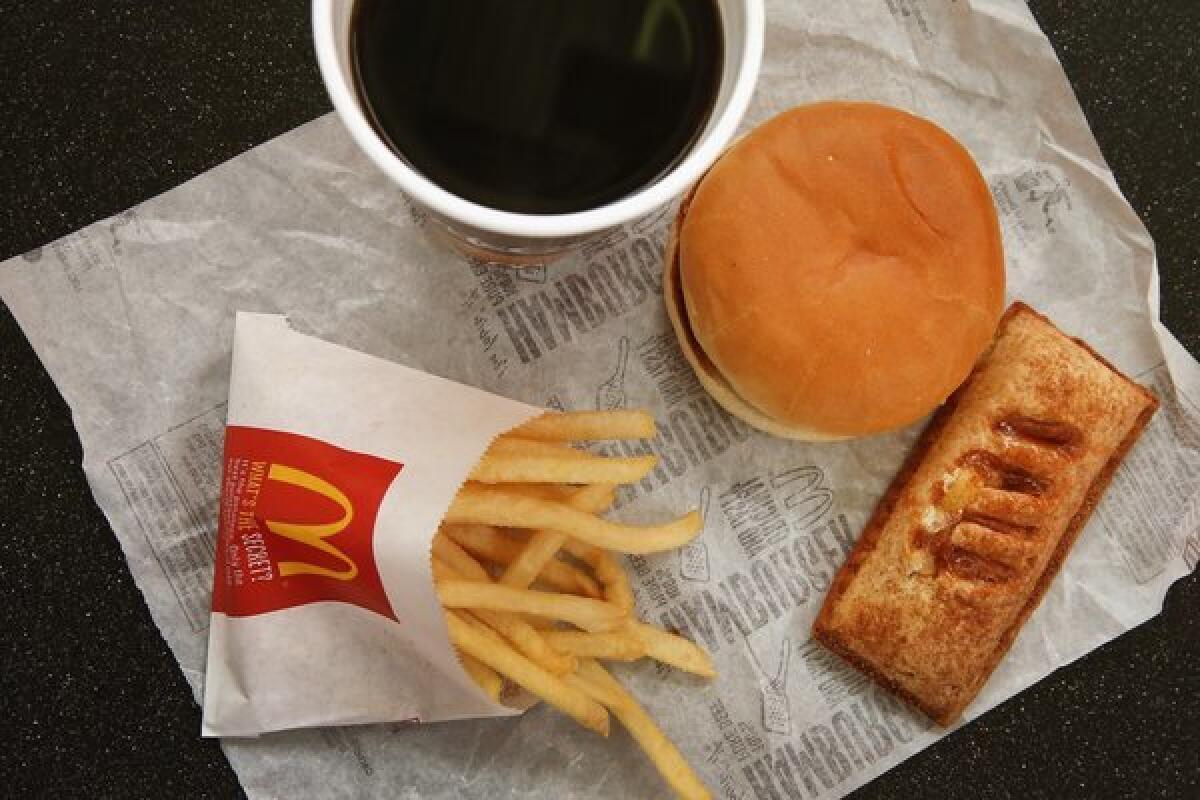Could fast food make it harder to stop and smell the roses?

Fast food might make it harder to stop and smell the roses – and not just because of the overpowering aroma of French fries – a new study from the University of Toronto argues.
Researchers pointed out that Americans have gained more and more leisure time, yet they aren’t any happier. The problem could be that modern conveniences that are supposed to save time actually make us more impatient, and therefore less able to savor small moments of joy.
To test that theory, the University of Toronto researchers carried out three different tests focused on happiness and quintessentially American “symbols of the culture of impatience”: fast foods.
In the first test, a few hundred Americans took an online survey meant to measure their tendency to savor enjoyable experiences. The researchers then matched their responses to U.S. Census Bureau data about their neighborhoods, as well as data on the number of fast food restaurants around them.
They found that people in neighborhoods with more fast food tended to do less savoring, even when researchers controlled for neighborhood wealth and other factors.
The difference was “small but robust,” explaining about 2% of the difference in the tendency to savor, said Sanford DeVoe, one of the researchers who conducted the study. That’s about the same effect caused by differences in income, DeVoe said.
“These results must be interpreted cautiously” because it’s unclear whether fast food was the cause, DeVoe and his fellow researchers wrote.
In the second test, researchers told 257 people to rate pictures based on whether they were suitable for ads. Participants saw a succession of pictures: One group saw a cup of coffee, a burger and fries in McDonald’s packaging; the other group saw the same coffee, burger and fries set out on ceramic tableware. Both sets of images were mingled with “neutral pictures.”
Afterward, some of the participants were shown photographs of “scenic natural beauty” and then were asked to rate their happiness. Others rated their happiness without seeing the pictures.
They found that people who saw the fast food before viewing the nature photos tended to rate their happiness lower. Yet those who simply rated their happiness without seeing the nature shots beforehand were actually slightly happier if they’d seen fast food ahead of time. Researchers said that suggests fast food doesn’t directly cause unhappiness but hampers the ability to savor things.
Not convinced yet? The researchers turned to a third test. This time, they showed 122 people the same photos of the burger and fries and then played “a harmonious opera aria” and measured two things: how much people enjoyed it and how long they felt it was.
People who are impatient feel that time passes slowly, they argued, so fast food might make people think time is dragging – and therefore enjoy things less. This time, they found that people who had seen fast food were less pleased by the music and said it seemed to go on longer.
All in all, researchers found that thinking about fast food made people less likely to savor something pleasurable, which indirectly impaired their ability to derive happiness. They cautioned that much more research was needed to determine exactly how fast food and happiness are intertwined and how strong the relationship really is.
“There is a long tradition of examining the impact of the prevalence of fast food on our physical well-being,” DeVoe wrote the Los Angeles Times in an email, “but this line of research is just beginning to uncover some of the psychological consequences it can have.”
ALSO:
Women’s mercury levels drop, suggesting safer fish choices
3,700-year-old wine cellar held booze you might not want to drink
To reduce heart attacks, strokes in the obese, control blood pressure





